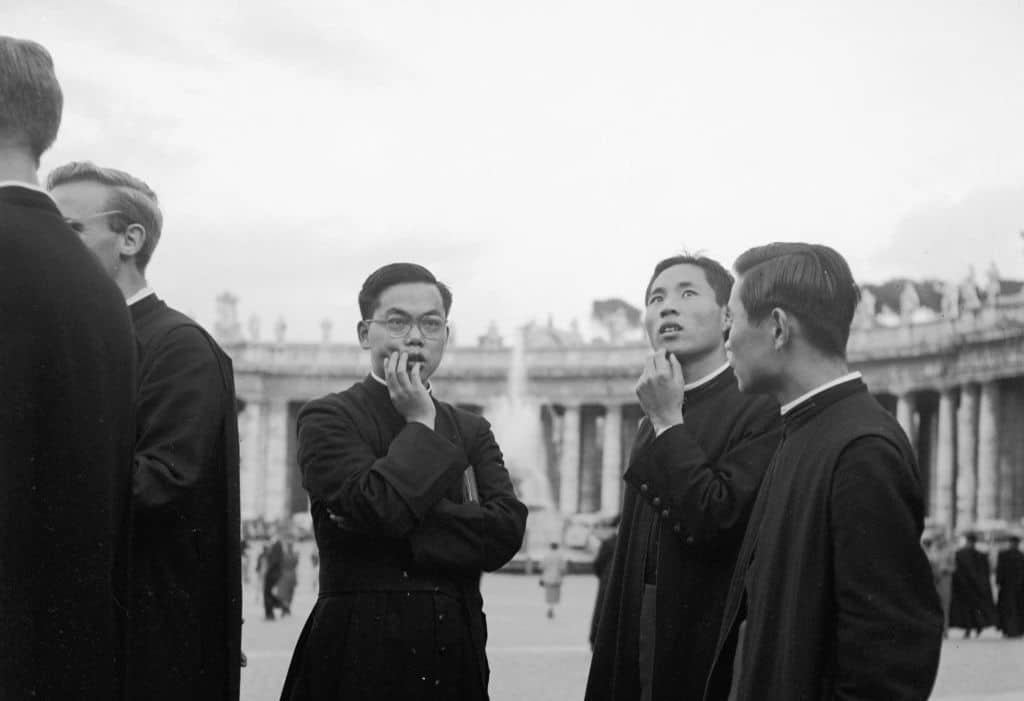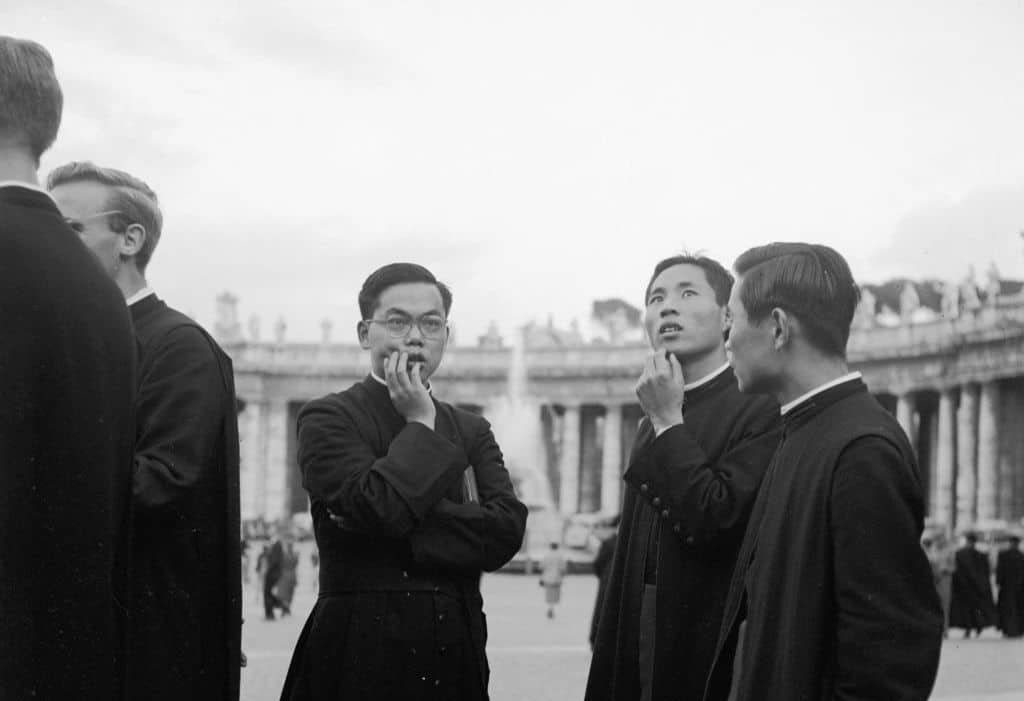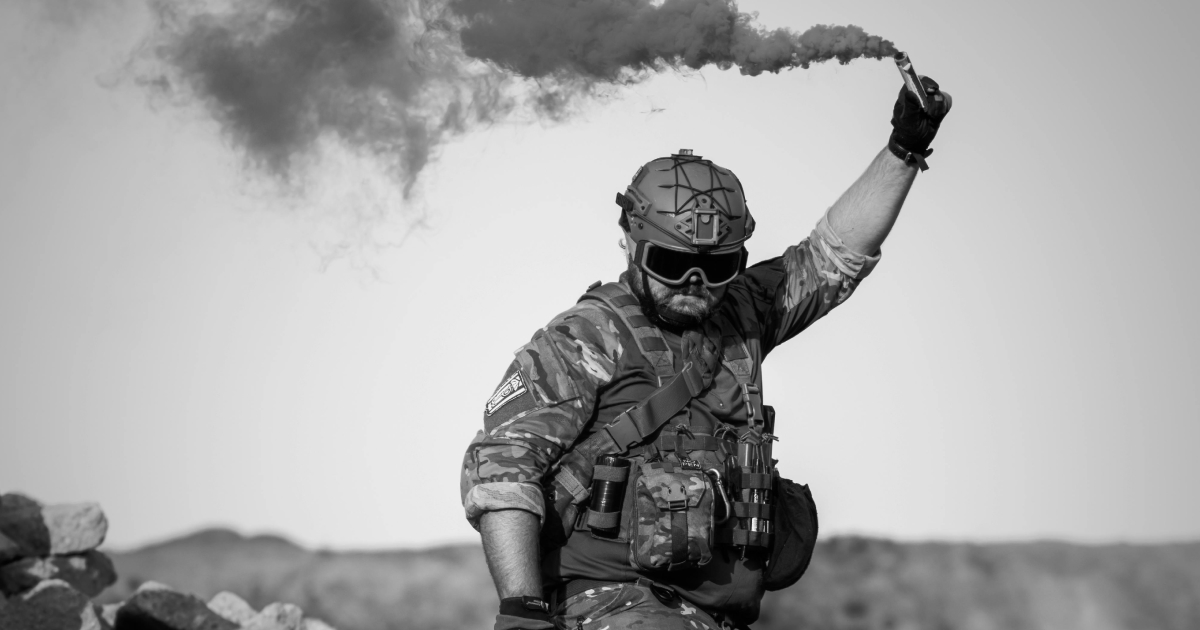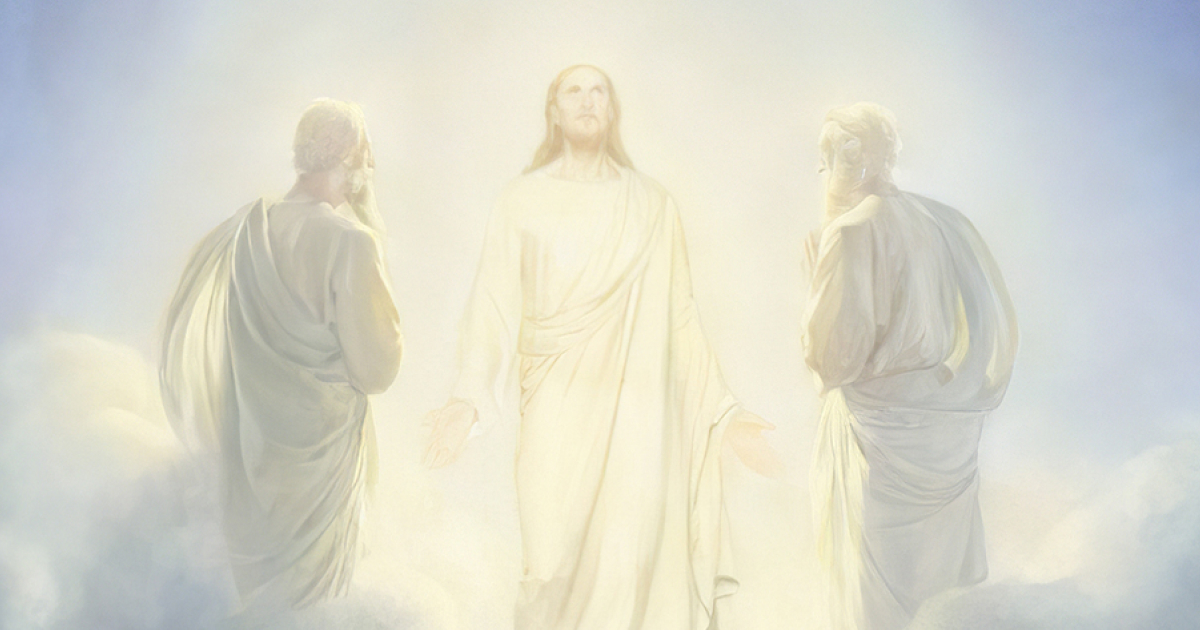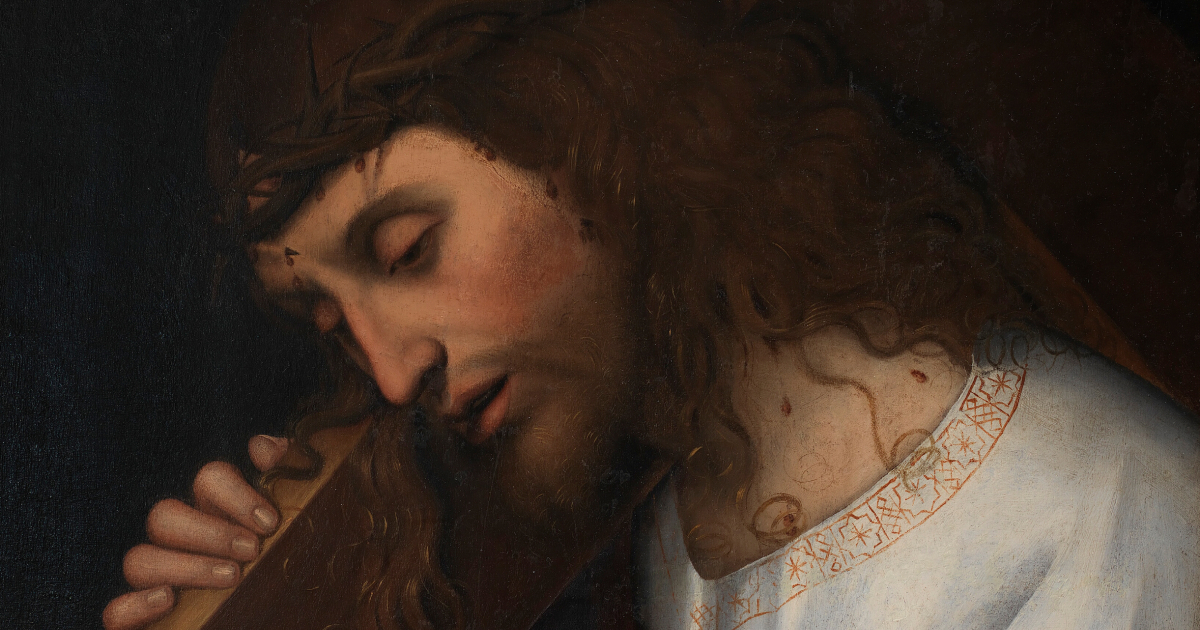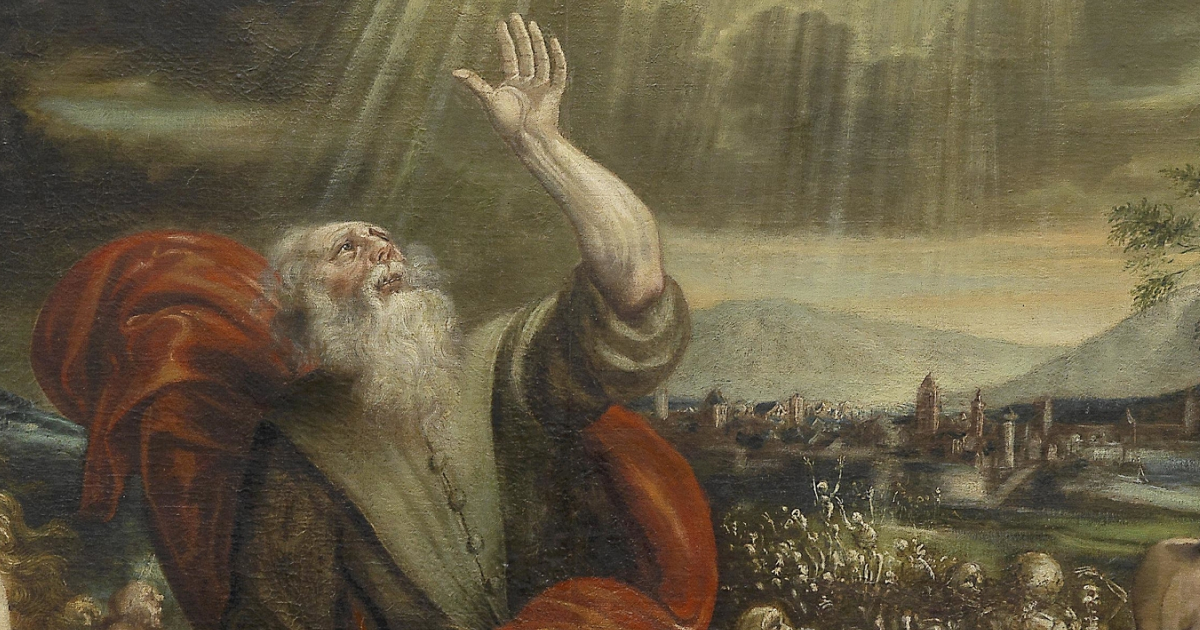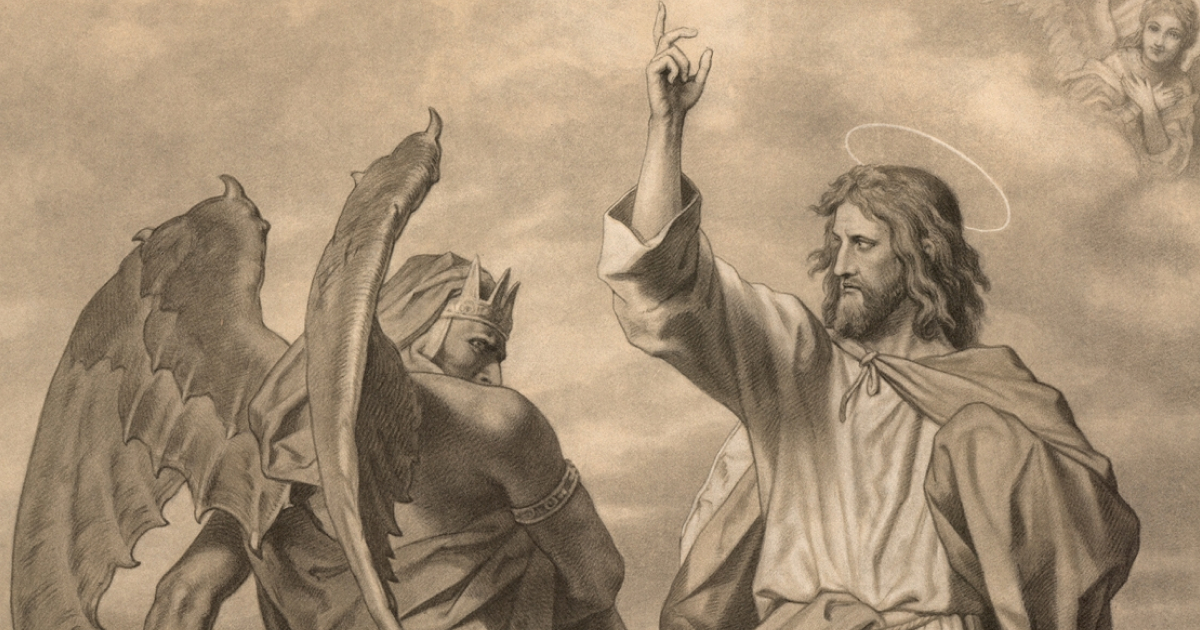‘In Christ Jesus, you that used to be so far apart from us have been brought very close, by the blood of Christ.’ (Ephesians 2:13)
In Sunday’s second reading, St Paul speaks to Gentiles who have become Christians and have been brought close to their fellow disciples who entered the Church from Judaism. He says this unity comes from the blood of Christ, and that the first non-Jews to profess faith in the blood of Jesus were the soldiers who executed him.
According to St Matthew, "when the centurion and those who were with him, keeping watch over Jesus, saw the earthquake and what took place, they were filled with awe, and said, 'Truly this was a Son of God!'" (27:54).
It seems that these non-Jews were brought to faith in Christ by shedding his blood, just as in the following centuries the executioners of Christian martyrs were to find faith in Jesus.
Jesus’s serene words and gestures of love on the cross transformed his killers, and so too the peaceful witness of martyrs has constantly converted souls to Christ.
Each one of us has shed the blood of Christ by our sins; we are all responsible for his death. But when we see how mercifully he accepts our blows, we can be converted by the very blood we have poured out.
When we sin, we can hear Jesus praying for us as he prayed for those soldiers: "Forgive them Father for they know not what they do" (Luke 23:34). Then we can suffer in love and offer compelling witness to those who persecute us.
As well as spilling Jesus’s blood by the scourging, the crown of thorns and the nails; one of the soldiers pierced his side after his death, opening a fountain of blood and water (John 19). That fountain still flows spiritually from his heart to ours in the sacraments, especially the waters of Baptism and the Precious Blood in the Eucharist.
Not only is Jesus the source of these graces, but he even leads us to them, as we hear in the psalm from Sunday: "Near restful waters he leads me, to revive my drooping spirit" (Psalm 22). The Good Shepherd leads us to his priests, whose hands are the channels for the saving fountain of his heart.
About priests, God prophesied through Jeremiah: "I will raise up shepherds to look after them and pasture them; no fear, no terror for them any more" (Jeremiah 23:4).
The priest, by his leading, defence and feeding of the laity, should give them confidence, not fear.
Jesus trusts his priests to cooperate with him, and so priests should trust lay people to cooperate with them, according to their respective vocations. Without this confidence, lay people become "sheep without a shepherd" as Jesus described the wandering crowd in the Gospel (Mark 6:34).
Let’s pray that the Good Shepherd will inspire priests to so serve those entrusted to them, that each of us can receive and offer the boundless mercy that issues from the heart of Jesus.





